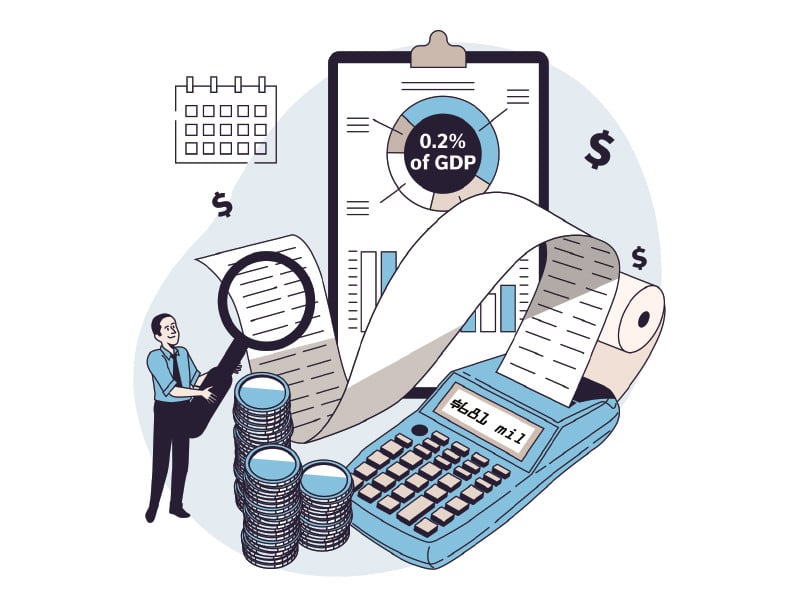By Murtaza Syed
Published in The Express Tribune on August 02, 2022
Mahbub ul Haq taught me all I know about economics that is ultimately worth knowing. In a nation cruelly short of heroes, Mahbub, my first boss, was a shining light. As Chief Economist of the Planning Commission in the 1960s, he punctured the celebrated high growth rates of the Ayub era. He showed an enraptured domestic audience that state resources had been misused to create powerful monopolies that stifled entrepreneurship and only survived because of subsidies. As a result, the benefits of this growth had been hijacked by a handful of families, who controlled the majority of the country’s land and industrial wealth.
Later, as an adviser to World Bank President Robert McNamara, Mahbub launched a frontal assault on the false god of economic growth and its cathedral on earth, the free play of market forces. He pointed out that across the world, too, growth often fails to translate into better lives for ordinary people. Moreover, he argued that the mythical forces of demand and supply do not work when people are shackled by low purchasing power or a handful has monopoly power. To address this, he saw a vital role for the state in kick-starting the process of growth and ensuring it was equitably shared. Through these insights, he pioneered the paradigm of human development, and with it the vastly influential human development index which looks beyond GDP to capture other vital dimensions of human well-being like decent education, good health, political freedom, cultural identity, personal security, community participation, and environmental security.
Mahbub was a man ahead of his time. His eloquence reverberated on the world stage. He emerged as the spokesperson of the developing world, incessantly appealing to the conscience of richer nations. He is missed every day. Today, a quarter century after his untimely passing, his beloved homeland remains mired in desperate poverty and massive inequality. While most of our neighbours have taken off, we remain stuck at a per capita income of a little over $1,000 and every third person lives on less than $3 a day. Almost half our people are illiterate and less than a quarter of our women work.
Much like in Mahbub’s time, the fault still lies in the engines of our growth and the fickleness of our public policies. Our politicians are obsessed with growth at any cost but pull the wrong levers to achieve it time and time again: lazy, short-term stimulus that inevitably leads to painful busts as opposed to the long and winding road of structural reforms that unleashes prolonged growth through higher productivity and innovation. Short-termism associated with political cycles and an unfortunate lack of preparation and imagination among the economic teams of political parties is to blame.
Pakistan today is a country that can barely grow above 4-5% without finding itself hobbled by a current account deficit it cannot finance. Its growth model is too reliant on consumption, which accounts for a staggering 95% of overall output, while investment and exports make up just 15 and 10%, respectively. As a result, the country runs a perennial current account deficit, in stark contrast to the surpluses generated by the high-saving Asian tigers of the 1970s and 1980s.
This leaves us at the mercy of foreign savings. Unfortunately, unlike other emerging markets, we hardly attract any meaningful investment from abroad into our companies or capital markets, and our own companies and banks do not borrow externally. Therefore, unless the world doles out generous amounts of aid as it did during the Musharraf era, the only way to finance our current account deficit is for the government to borrow from abroad and thus build up external public debt.
If this debt were being used to finance investment in Pakistan that increased the productive capacity of the economy or exports that generated foreign exchange, it would be healthy, and we would be able to pay it back. Unfortunately, in our case, it is used to finance egregious levels of consumption so that we need to continually borrow to pay back our old debts. This game cannot be played indefinitely, and we have reached its limits. This is what pushes us to the IMF time and time again.
So today, we are a million miles from Mahbub’s visions. Thanks to unfettered population growth, Pakistan has become the fifth-largest country in the world. By this metric alone, it should be a major force on the globe. And yet, we have become curiously inward-looking and self-absorbed. Our companies do not make anything that other countries want. They are very comfortable operating within our borders, protected by generous government subsidies and barriers to competition. Our media only carries domestic stories and mostly of the sensational kind. It is then no surprise that we have a major identity crisis in terms of our place in the world and the friends we wish to cultivate. Domestically, our social contract is in tatters. Our people do not trust their government enough to pay taxes in exchange for vital public services like health, education, roads, and security.
So how can we break free? Half a century of global experience has taught us that there are a few necessary conditions for sustained growth. These include fiscal and monetary discipline that guarantees macroeconomic stability, right sizing the government so it is neither too large nor too small, relying on investment and manufacturing as major growth engines, rallying behind reformist governments, encouraging entrepreneurship and innovation, and making the most of your geographical location.
Getting these basics right is important but there are no boiler-plate solutions for achieving them that can simply be imported. Local realities must be kept in mind. In our quest for lasting growth and poverty reduction, there is no substitute for perseverance, experimentation, and learning from mistakes. China’s development story illustrates these virtues. Moreover, all of China’s leaders and key economic managers are made to spend vast amounts of time being groomed at the grassroots level in different provinces before being allowed to ascend the corridors of power.
Without a similar mindset, we can never progress. I will turn to some of these ideas in subsequent writings. For now, let me conclude with one of Mahbub’s favourite couplets from Faiz. It captures well the zeitgeist that must define our country’s journey from here:






